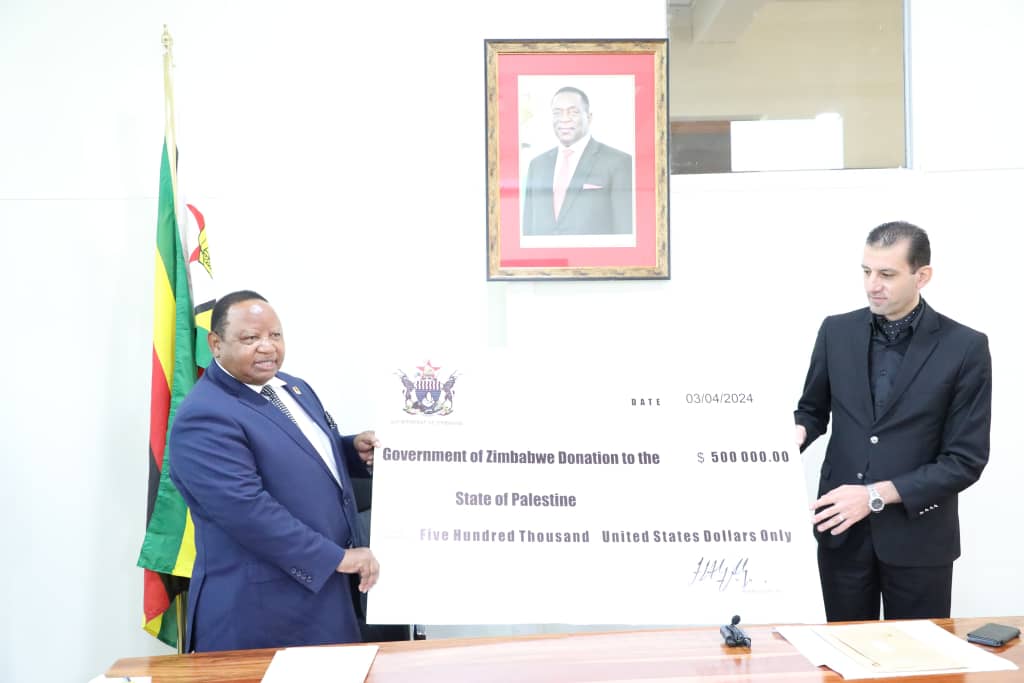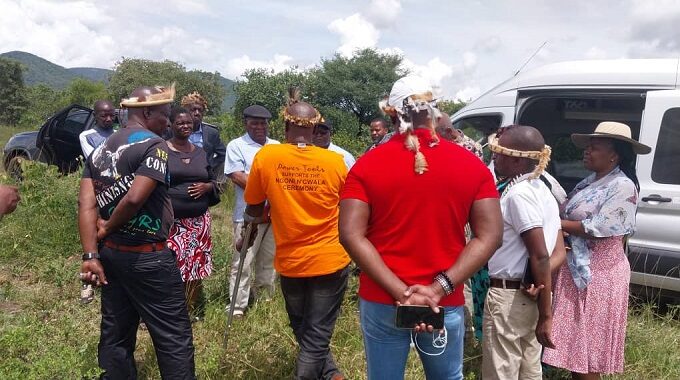by Owen Gagare
FOLLOWING the brutal purging of vice-president Joice Mujuru and her allies ahead of, during and after the watershed Zanu PF congress in December 2014 which resulted in the elevation of her long-time rival Emmerson Mnangagwa to the state and party vice-presidency, many expected factional fighting to be a thing of the past in the ruling party. Mnangagwa was expected to have an easy path to succeed President Robert Mugabe.
Mujuru was suspended and eventually dismissed from Zanu PF over allegations of corruption and fanning factionalism, as well as plotting to dethrone and even kill Mugabe, among a host of other unproven allegations.
Several senior party officials, including former secretary for administration Didymus Mutasa, spokesperson Rugare Gumbo, political commissar Webster Shamu, politburo members Dzikamai Mavhaire and Olivia Muchena, as well as nine provincial chairpersons were dismissed, signalling the decimation of the Mujuru faction.
But no sooner had Mujuru fallen, did the remaining Zanu PF officials turn on each other, setting stage for another bruising factional fight in 2015.
Members of G40 who had teamed up with Mnangagwa’s backers to derail Mujuru, coalesced around First Lady Grace Mugabe, accusing Mnangagwa of failing to be a unifying force by, among other things, pursuing regional politics.
The vice-president’s backers, on the other hand, felt some G40 members, particularly Jonathan Moyo and political commissar Saviour Kasukuwere, were using their positions to fight Mnangagwa for political self-preservation.
The continuation of factional fights confirmed a long held view that Zanu PF’s failure to resolve Mugabe’s succession was at the centre of the conflict in the party and as long as the party fails to deal with the issue, infighting would continue.
For most of the year, succession fights in Zanu PF were low in intensity, given that key members of the factions were regularly engaging to find common ground, but the intensity gradually increased as mistrust and ambitions of both factions grew.
Party officials say the two warring factions have developed contrasting game plans regarding Mugabe’s succession.
The Mnangagwa faction is reportedly pushing for an extraordinary congress in 2017 to pave way for the vice-president to take the reins ahead of the 2018 general elections, while the Grace and G40 group prefers consolidating around the ageing Mugabe. The Mnangagwa camp is advocating for an extraordinary congress where a new leader would be elected as they believe Mugabe, (soon to be 92), does not have the capacity anymore to lead the party and the country beyond his current tenure amid increasing signs of his infirmity.
Mugabe would be 94 in 2018 when the next general elections are due.
To derail Mnangagwa, Grace and her backers have declared Mugabe the sole candidate for the 2018 elections, giving their faction more time to organise and destabilise the vice-president’s group. Grace and her allies believe Mugabe’s extended rule would give them time to build a constituency and penetrate the party’s structures, which they hope to use as a springboard to upstage the Mnangagwa faction.
Mugabe’s early departure would, however, leave Grace seriously exposed as she lacks a power base and gravitas to survive without him.
There are fears though that Mugabe may not be strong enough to stand as he is increasingly showing signs of infirmity, but the group believes he can defy odds like he has continuously done over the years.
Zanu PF succession wars were more intense in the Grace-led Women’s League, where former chairperson Oppah Muchinguri and spokesperson Monica Mutsvangwa, who both hail from Manicaland, fought to throw spanners in the First Lady’s works.
Former Manicaland Women’s League chairperson, Happiness Nyakuedzwa, who was believed to be working under Muchinguri and Mutsvangwa’s instruction, was suspended from the party for allegedly disrespecting Grace before, but the First Lady continued to get resistance.
However, Muchinguri and Mutsvangwa refused to be cowed and tried in vain to fight Nyakuedzwa’s suspension. Mutsvangwa went to the extent of telling Kasukuwere not to interfere in the affairs of Manicaland before she was suspended for disrespecting the party’s leadership.
Muchinguri last month took Grace head-on in a politburo meeting accusing her of being divisive and disrespectful, among other things, leaving her stunned and in tears.
But the highlight of the fallout in the Women’s League occurred when the suspended Women’s League national secretary for administration, Esphinah Nhari chanted an anti-G40 slogan at Grace’s last rally a week before the party’s national conference in Masvingo. Her brave move resulted in clashes between Nhari and Masvingo minister of State for Provincial Affairs Shuvai Mahofa on one hand, and Grace’s ally Sarah Mahoka, on the other.
Vice-President Phelekezela Mphoko intervened and strongly reprimanded Nhari, who was later suspended from the party.
Addressing the Zanu PF central committee in Harare a fortnight ago, Mugabe acknowledged that factionalism in his party was out of control and expressed his fear that the party could split.
“The problem that we now has to do with personalities, people wanting to advance themselves within the party, wanting this position or that position and so we have a problem that threatens to split the party,” he said.
Issues to do with factionalism dominated the party’s conference in Victoria Falls, with the G40 pushing for a resolution to have a woman in the party presidium.
If the proposal had been adopted, the faction planned to push for a party constitutional amendment using the Central Committee, the party’s supreme decision-making body in between congresses, to have Grace appointed vice-president alongside Mphoko, with Mnangagwa being redeployed.
The Mnangagwa faction, however, resolved to support the elevation of a woman into the presidium on a rotational basis. The faction wanted to push for a woman vice-president to be appointed from former Zapu members arguing the last female vice president, Mujuru, was from Zanu PF.
This meant that Mphoko, who is Grace’s ally, would have been sacrificed.
There was so much acrimony around the resolution that the Zanu PF leadership was not brave enough to deal with the Women’s League’s proposal at the conference.
Instead, the conference ended without resolutions being consolidated with the party’s secretary for legal affairs Patrick Chinamasa announcing that resolutions would be fine-tuned and sent to the provinces later.
But even the conference failed to heal the divisions because soon after, another Mnangagwa ally, War Veterans minister Christopher Mutsvangwa was suspended for alleged indiscipline.
University of Zimbabwe political analyst Eldred Masunungure said Zanu PF factional fights will continue into 2016 and beyond if the party fails to come up with Mugabe’s successor.
In fact, Masunungure says, the fights are likely to get more intense as 2018 draws nearer which may force the party to eventually tackle Mugabe’s succession.
“Well, what is in store in 2016 is more of the same, and not just a continuation of the factional fights we are witnessing. Factionalism is fed by the unresolved succession question and will get worse,” he said.
“It’s not one of the problems in Zanu PF; it is the central problem in the party and as long as it is unresolved or deferred we will not only have a continuation, but a worsening of the factional fights.
“The succession problem will not go away; it will instead widen and deepen until it is resolved.”
Masunungure said because of the growing fissures in the party Zanu PF may be forced to deal with the succession problem by declaring Mugabe as a life president, which would not help the situation.
Alternatively, Mugabe can choose a successor in the mold of Mnangagwa, Grace or a dark horse such as Defence minister Sydney Sekeramayi, who has also been mentioned in the succession race.
“If he chooses a successor, those who are unhappy with his choice will still push their factional agendas. If he is declared a life president, it may mitigate the situation but because of his age, they (Zanu PF officials) will, just like vultures do when they detect that a prey is on the verge of death, circle around so that they pounce,” he said.
“So in my view, Zanu PF is destined for a factionalised future, until the party has a new leader and possibly a new state president.”
Commentator Blessing Vava also believes factionalism will remain deep-rooted in Zanu PF as long as Mugabe is alive. He believes Mnangagwa will remain hamstrung and thus vulnerable as long as Mugabe is in power.
“Factionalism will remain a hot potato in Zanu PF because of the succession puzzle. Mnangagwa cannot consolidate as long as Mugabe is still in charge and is expressing eagerness to continue ruling,” he said.
“I’m sure he is afraid of falling the same way as Mujuru. He is being watched closely and he is quite aware of the consequences.”ZIMIND







